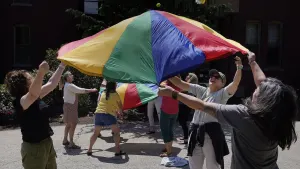More Stories
With the possibility of one or more COVID-19 vaccines becoming available before the end of the year, the U.S. Centers for Disease Control and Prevention has new information on the plans.
Although the CDC does not have a role in developing COVID-19 vaccines, it has been working closely with health departments and partners to develop vaccination plans for when a vaccine is available.
1. The safety of COVID-19 vaccines is a top priority:
The U.S. vaccine safety system ensures that all vaccines are as safe as possible. Learn how federal partners are working together to ensure the safety of COVID-19 vaccines.
2. Some vaccines might be ready before others:
The CDC is working with partners at all levels, including health care associations, on flexible COVID-19 vaccination programs that can accommodate different vaccines and scenarios. It has been in contact with your state public health department to help with your state’s planning. State, tribal, local, and territorial health departments are critical to making sure vaccines are available to communities.
3. At least at first, COVID-19 vaccines might be used under an Emergency Use Authorization (EUA) from the U.S. Food and Drug Administration (FDA):
Learn more about Emergency Use Authorization and watch the video below on what an EUA is.
4. There may be a limited supply of COVID-19 vaccines before the end of 2020, but supply will continually increase in the weeks and months that follow:
The goal is for everyone to be able to easily get a COVID-19 vaccine as soon as large quantities are available. The plan is to have several thousand vaccination providers available, including doctors’ offices, retail pharmacies, hospitals, and federally qualified health centers.
5. If there is limited supply, some groups may be recommended to get a COVID-19 vaccine first:
Experts are working on how to distribute these limited vaccines in a fair, ethical, and transparent way. The National Academies of Sciences, Engineering, and Medicine (NASEM) gave input to the Advisory Committee on Immunization Practices, which will make recommendations to the CDC director once a vaccine(s) is authorized or approved for use.
6. At first, COVID-19 vaccines may not be recommended for children:
In early clinical trials for various COVID-19 vaccines, only nonpregnant adults participated. However, clinical trials continue to expand those recruited to participate. The groups recommended to receive the vaccines could change in the future.
In the video below, Dr. Sharon Nachman, chief of the Division of Pediatric Infectious Diseases at Stony Brook Children's Hospital, gives some insight on COVID-19 vaccine research and children.
7. Cost will not be an obstacle to getting vaccinated against COVID-19:
Vaccine doses purchased with U.S. taxpayer dollars will be given to the American people at no cost. However, vaccine providers will be able to charge administration fees for giving or administering the shot to someone. Vaccine providers can get this fee reimbursed by the patient’s public or private insurance company or, for uninsured patients, by the Health Resources and Services Administration’s Provider Relief Fund.
8. COVID-19 vaccine planning is being updated as new information becomes available:
The CDC will continue to update this website as plans develop.
More from News 12
1:28

5 simple steps for long-term benefits to your health and heart
1:32

8 tips for working safely during hot weather
3:31

Guide: Ways to set your child up for financial success
3:18

Guide: The importance of good sleep and how to get it

Guide: Mental health resources available in the tri-state
9:36
